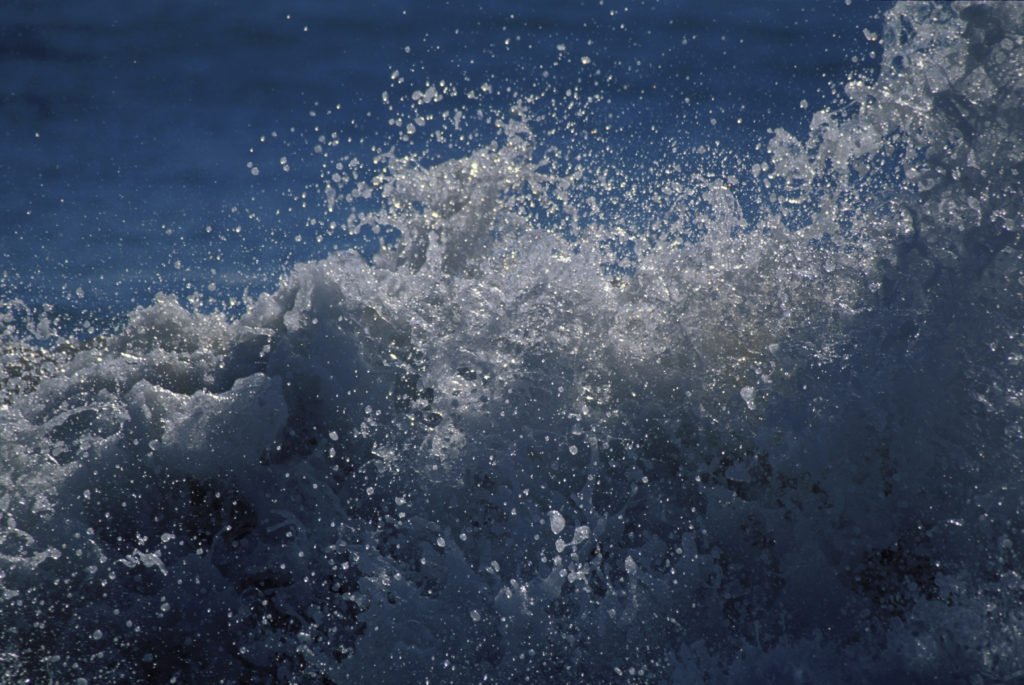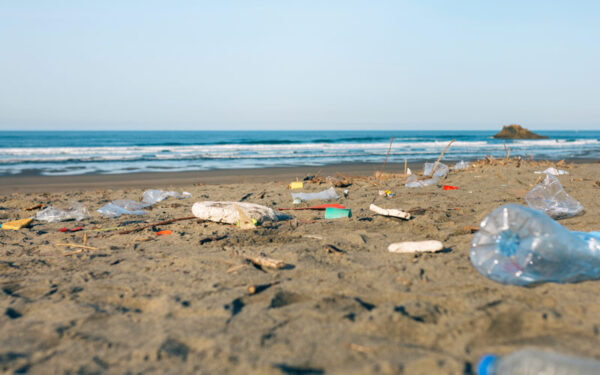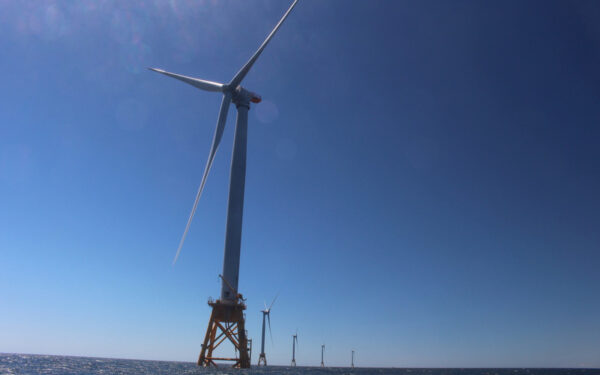
A slew of bills in Congress would endanger our marine life and ocean ecosystems by decimating key conservation protections offered by existing laws. Photo: EcoPhotography
Don’t be fooled by their clever titles. A slew of bills under debate in Congress would endanger our marine life and ocean ecosystems by decimating key conservation protections offered by existing laws. Coupled with harmful actions from the Executive Branch, our ocean faces threats from some in Washington who are more concerned with lining the pockets of a few oil and gas industry executives than with the health of our ocean and coastal communities.
Not even a year after the Northeast Canyons and Seamounts Marine National Monument – the only monument in the Atlantic – was designated using the Antiquities Act, the Trump administration sought to degrade its protections as well as protections for some of our other most treasured areas on land and in the sea. Then, as if that wasn’t enough, the administration announced a plan that could open up 90 percent of the nation’s coastal waters to destructive oil and gas drilling.
There are three bills that CLF is keeping its eye on in Congress that are yet another threat to our national monuments and healthy ocean ecosystems as a whole. All three bills below passed out of committee and could come for a full House vote before the August recess.
“SECURE” Act would only ensure oil and gas profit
Some in Congress have a vested interest in fossil fuel companies making a profit by exploiting our natural environment. H.R. 4239, “The SECURE American Energy Act,” makes it easier to explore ocean waters for oil and gas while gutting marine protections. Surveying for oil and gas endangers ocean wildlife, which are already fighting to ward off impacts from warming temperatures and acidification.
Introduced by Rep. Steve Scalise (R-LA), the SECURE Act reads like a laundry list of threats for our ocean, putting marine wildlife, ecosystems, and the ability to prevent oil spills on the chopping block. If passed, it would:
- Remove important safeguards in the permitting process of offshore oil and gas projects, allowing seismic testing to be approved faster. Seismic testing is used to search for oil and gas reserves and it harms marine mammals like whales, dolphins, and manatees.
- Eliminate the federal government’s ability to require long-term monitoring of oil and gas projects to ensure they don’t negatively impact marine mammals. This would be especially harmful to critically endangered North Atlantic right whales, given the tragic loss of 18 whales since April 2017 and no new calves spotted this year, a crisis that increases their risk of extinction.
- Eliminate the president’s authority to designate marine national monuments under the Antiquities Act, putting oil and gas interests over Americans’ ability to preserve the ocean’s health for future generations.
- Revoke presidential authority to establish permanent protections from offshore oil and gas leasing as granted under current law.
“National Monument Creation and Protection Act” would allow monuments to be eliminated
H.R. 3990, the “National Monument Creation and Protection Act” does the opposite of what its name implies. Introduced by Rep. Rob Bishop (R-UT), Chair of the House Natural Resources Committee, H.R. 3990 would amend the Antiquities Act directly. The provisions in this bill would:
- Extend the president’s authority under the Antiquities Act to allow for the ‘undoing’ of monument designations and/or the ability to reduce the size of monuments, putting 157 of our current monuments at risk.
- Disallow presidents from establishing monuments in the ocean, eliminating an effective tool for protecting areas of scientific and ecological importance in our ocean.
America’s land and ocean monuments make some areas of natural, cultural, or scientific importance off limits from commercial use. This bill would not only endanger previously protected areas, it would also eliminate the only mechanism we have to establish comprehensively protected areas in the ocean at a time when we need these protections more than ever.
“Increasing Flexibility in Fisheries Management” would deplete fish stocks
H.R. 200, the “Strengthening Fishing Communities and Increasing Flexibility in Fisheries Management Act,” was introduced by Rep. Don Young (R-AK). The bill re-authorizes the U.S. federal fisheries law, the Magnuson-Stevens Act. The Magnuson-Stevens Act has been successful in rebuilding many of our nation’s key fisheries. Its reauthorization is important, but H.R. 200 is not the bill to do it: It is bad both for the health of fisheries and for the health of the ocean at large. On top of detrimental changes to fisheries management, it would:
- Prioritize fishing over enforcement of the National Marine Sanctuaries Act, the Endangered Species Act, the National Environmental Policy Act, and the Antiquities Act, putting 157 of our current monuments at risk.
- Allow regional fishery management councils control of commercial fishing operations within marine national monuments, giving one industry the power to override important monument protections as designated by the president through the Antiquities Act.
Marine national monuments are managed separately from our fisheries because commercial fishing is just one use of our increasingly busy ocean. The ocean belongs to all of us, not just one industry, and the Antiquities Act allows presidents to recognize that some areas should be off-limits to commercial extraction.
Resolving to Fight Back
These bills represent a coordinated effort by some in Washington to put short-term commercial industry interests over the long-term health and prosperity of our oceans, our ecosystems, and our coastal communities. Experts recommend about 30 percent of our oceans should be protected in order to help restore fish populations, replenish ecosystems, and fight off the impacts of climate change. But currently, only about 3 percent of our oceans enjoy such safeguards.
Picture an ocean dirty from oil spills, no whales in sight, and communities unable to fight off the impacts of climate change. Is this the legacy that Congress and the Trump administration want to leave for future generations?
We envision our future differently, and that’s why we’re fighting the coordinated attacks on our public lands and waters:
- We’re prepared to take legal action if the President attempts to gut the protections of our New England marine national monument.
- We showed up to oppose offshore drilling in the Atlantic, and will continue to stand up for New England’s ocean.
- We’re meeting with our New England Congressional delegation to make sure they know about the status of this coordinated effort, and the impact of these attacks on our region’s people, ocean ecosystem, and economy.
You can help! To join us in this fight you can call your representatives and tell them to stand up for the ocean by:
- Voting no on any bill that threatens our oceans.
- Condemning any rollbacks of the Antiquities Act.
- Demanding that the administration maintain protections for the Northeast Canyons and Seamounts Marine National Monument.




